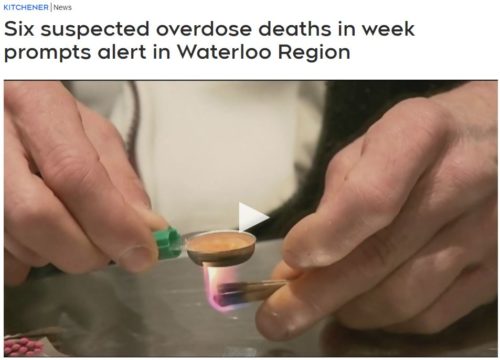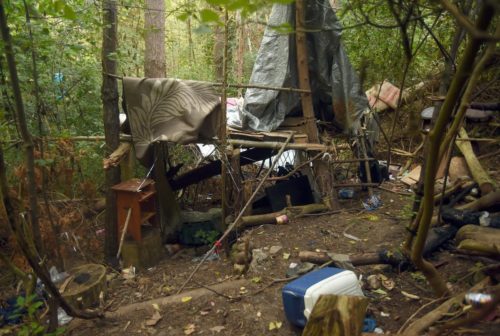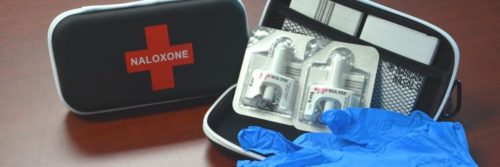Author Archive
Posted on: February 3rd, 2022 by Waterloo Region Crime Prevention Council
WRCPC strives towards a safe, equitable, and just community where everyone has access to the opportunities to thrive, to love, and be loved. Events over this past week have highlighted how hateful and violent acts perpetuated by white nationalism continue to harm our Black, Indigenous, and racialized community members.
WRCPC supports Selam Debs and her anti-racism advocacy, and we stand with her and others who have been targeted by white supremacy through harmful and cruel acts.
It is also critical to note that white supremacy and it’s intersections with colonialism, capitalism, patriarchy, and ableism are tied directly to systems that deny many in our community access to safe, equitable, and just opportunities. Deep structural transformation is necessary to address these systemic harms.

You can take action by:
- Mobilizing your community group or organization to share Selam’s letter to publicly condemn this violence and racism that continues to happen in Canada. (Click here to share on Facebook, click here to share on Twitter, click here to share on Instagram.)
- Write a letter to your elected officials imploring them to publicly condemn acts of white nationalism and racialized violence.
- Report instances of racism and demand justice. Use the following tool to report online harassment: https://bit.ly/reportonlineharassment
- Connect with local anti-racism resources and learn about the ways white supremacy and white nationalism are being perpetuated. Below is a list of some resources available in Waterloo Region:
- Share and publicly condemn acts of white supremacy and white nationalist violence.
If you are in need of support, contact HERE27 for phone line support: 1-844-437-3247 (HERE247)
HERE27 local line: 519-821-3582 | TTY: 1-877-688-5501
Click here for more information and links to support services across Canada.
Posted on: February 2nd, 2022 by Waterloo Region Crime Prevention Council
Message from the Chair & Vice Chair of the Crime Prevention Council:
After 28 successful years of ground-breaking work in partnership with The Region of Waterloo, the Crime Prevention Council’s administrative and funding relationship with the Region will come to an end on March 31, 2022.
As we rethink and reshape our new direction, our group of 40+ community leaders and organizations are:
- guided by our values of courage, collaboration, commitment, and compassion,
- inspired by our past successes, and
- committed to authentic community development to address the root causes of social harm.
Thirty years ago, few people talked about addressing the root causes of crime. Now, topics like basic income and safe supply – even the term “upstream” – are part of robust mainstream conversations.
Without the skills, knowledge, commitment, and courage of a stellar ‘dream team’ staff, none of this would have been possible.
We’re very proud of our role in sparking these critical conversations in new and creative ways, of providing robust research, and of decades of multi-sector collaborations that broke down silos, reached new audiences, and created new paths forward.
Our Council members and partners are taking time for our own critical conversations as we reimagine our path forward. We thank you for your involvement and support over the years and invite you to stay connected as we write our next chapter.
Signed Richard Eibach, Chair and Irene O’Toole, Vice Chair
If you have any questions, please email reibach@uwaterloo.ca

Posted on: February 1st, 2022 by Waterloo Region Crime Prevention Council
 CTV News – Jan. 31, 2022: An overdose alert has been issued in Waterloo Region after six suspected opioid overdose deaths were reported in a week.
CTV News – Jan. 31, 2022: An overdose alert has been issued in Waterloo Region after six suspected opioid overdose deaths were reported in a week.
In a Monday release, Waterloo Region Integrated Drugs Strategy (WRIDS) said the suspected overdose deaths happened between Jan. 17-23.
The organization adds that there was also an increase of overdoses this past weekend, with some needing multiple doses of naloxone.
No specific colour of stronger substances is circulating, which has been indicators of increased overdoses in the past. WRIDS said substances may just be stronger or contain certain elements that are causing unexpected reactions.
“Unfortunately there is no sign that the drug market will become healthier or safer this year or in the years to come,” said Michael Parkinson of the Waterloo Region Crime Prevention Council. “In Waterloo Region in 2021 there were [a record high] 155 unprevented drug poisoning fatalities. In December alone, 20 people lost their lives to drug poisoning.”
WRIDS is advising residents to use the Consumption and Treatment Services site at 150 Duke Street West, never use alone, do not use at the exact same time, administer naloxone if an overdose is suspected, and pick up free naloxone at several locations in the area.
Click here to read the rest of the article and watch the story on CTV News.
Posted on: January 24th, 2022 by Waterloo Region Crime Prevention Council
 CBC News – Jan 20, 2022: The new year isn’t even three weeks old, but already, Waterloo region’s police chief says he’s concerned about an uptick in commercial robberies.
CBC News – Jan 20, 2022: The new year isn’t even three weeks old, but already, Waterloo region’s police chief says he’s concerned about an uptick in commercial robberies.
There have been 20 robberies so far, up from 12 at this point last year, Chief Bryan Larkin said during a police services board meeting Wednesday.
Among them was a robbery at a jewelry store in Conestoga Mall, where suspects were “armed with axes and sledgehammers,” Larkin said. Another robbery was at a commercial bank in Wellesley Township.
“We don’t often see that,” said Larkin.
There have been six robberies targeting independent pharmacies, including three that police say happened all on the same night. The culprits targeted prescription pills, rather than cash or other products, leading investigators to believe they planned to sell the drugs on the illegal market.
Larkin said police are working on a strategy to deal with the increase in robberies, but also noted that, when it comes to the pharmacy thefts, “the underlying issue there is addiction.”
“As a police service, we still believe that if we can solve housing, if we can address poverty, and if we can address social disparities, then naturally, other challenges of crime will also find better outcomes and better solutions,” he said.
Michael Parkinson, with the Waterloo Region Crime Prevention Council, believes the robberies point to a larger issue: that Canadian drug policy hasn’t done a good job of reducing crime, or protecting victims.
“Until Canadians as a society get serious about upstream prevention, about reforming antiquated drug law and policy, [these robberies] will continue to be a feature in the region and far beyond,” he said.
A related concern, both Larkin and Parkinson said, is the increase in overdose deaths during the pandemic.
In 2019, there were 62 suspected overdose deaths in Waterloo region. In 2020, there were 106, and in 2021, there were 99.
Click here to read the article on the CBC News website.
Posted on: January 11th, 2022 by Waterloo Region Crime Prevention Council
CTV News – Jan 10, 2022:
There were 99 suspected overdose deaths in Waterloo Region in 2021, according to the Waterloo Region Integrated Drugs Strategy (WRIDS). WRIDS updated its 2021 data on Jan. 10. In 2020, there were a record 106 overdose deaths in the area. Waterloo Region’s Overdose Monitoring Report shows 1,504 overdose-related calls in 2021, including 138 in the month of December.

In 2020, the region reported 1,243 overdose-related calls. Confirming a cause of death can take up to a year, meaning the total from 2021 could increase.
“Some of them just don’t get caught by ourselves or police as a possible opioid death,” said Rob Crossan, deputy chief of Region of Waterloo Paramedics. Michael Parkinson with the Waterloo Region Crime Prevention Council said the numbers are only related to opioid use.
On Sunday morning, Waterloo regional police tweeted a warning after responding to four overdose calls in just one night. Officials suspect those overdoses were caused by fentanyl. They’re reminding people to carry naloxone.
Michael Parkinson with the Waterloo Region Crime Prevention Council said consumption and treatment services sites aren’t enough, adding that safe supply is needed to help end the crisis. “What we have watched is a preventable disaster unfolding before our eyes and, unfortunately, no real end in sight in 2022,” he said.
Click here to watch the news cast and read the original article on CTV News.
Posted on: December 21st, 2021 by Waterloo Region Crime Prevention Council
 KITCHENER – Over the last two weeks, nine suspected opioid overdoses have been reported in Waterloo Region and for those on the front lines of the community’s opioid crisis, it’s nothing new.
KITCHENER – Over the last two weeks, nine suspected opioid overdoses have been reported in Waterloo Region and for those on the front lines of the community’s opioid crisis, it’s nothing new.
The Waterloo Regional Police Service reported three deaths from suspected opioid overdoses on Saturday evening.
Officials told CTV News a 50-year-old man was found dead in Kitchener, a 19-year-old woman was located at a residence and taken to Cambridge Memorial Hospital where she was pronounced dead and a 21-year-old woman was found at a residence in Kitchener.
Front-line workers in the community say it’s the most vulnerable populations who are often the victims.
“It hurts obviously, yet we don’t have the space to mourn and grieve in an appropriate way because there are so many,” said Kourteney King, director of community development for the Sanguen Health Centre.
Drug strategy specialist, Michael Parkinson, with the regional crime prevention council, says 135 drug-related deaths have been reported so far this year, just 10 short of last year’s record high of 145.
“That’s about seven times the number who died on our roadways in Waterloo Region in all of last year,” said Parkinson.
He adds, in Ontario about one in six drug poisoning deaths are among people who lack stable housing.
Parkinson is calling for an urgent and proportional response, similar to the way officials respond to other important crises, like the pandemic.
Click here to read the full article and watch the video.
Posted on: December 20th, 2021 by Waterloo Region Crime Prevention Council
WATERLOO REGION — How many people experiencing homelessness have died this year in Waterloo Region? How many people died last year?

In Toronto, 143 unhoused people died in 2020 — that’s nearly three deaths a week. In the first half of this year, data suggests at least 94 people died. The number of deaths in Toronto’s homeless community has risen sharply since 2018 and local policies have been drafted in response.
But in Waterloo Region, this data is not widely shared. Local shelters are expected to report any deaths in a “community database” that is only available to the Region of Waterloo and select service providers, but not every death in the homeless community is being accounted for.
If someone dies while staying in an encampment, or couchsurfing at a friend’s apartment, that person’s death may not be documented because there’s no organization dedicated to tracking and reporting the information.
[…]
When it comes to tracking deaths related to drug use, the data is easier to come by.
According to data from the Office of the Chief Coroner, there were 145 drug-related deaths reported in Waterloo Region in 2020. This includes suspected deaths related to all drugs, including alcohol.
In the first 11 months of this year, 135 suspected drug poisoning deaths have been reported. Most involve fentanyl, and about half involve more than one substance. These more recent numbers are subject to change slightly as toxicology results come in.
Deaths related to opioid poisoning are monitored by the Waterloo Regional Police Service. As of Dec. 6, there were 87 deaths reported through the regional overdose monitoring report. Last year there were 102 deaths, and in 2019 there were 62.
Michael Parkinson, drug strategy specialist with the Waterloo Region Crime Prevention Council, said in Ontario around one in six drug poisoning deaths are among people who lack stable housing. With 135 overdose deaths reported locally so far this year, data suggests more than 20 of those people were homeless.
“So far as I know, no one is specifically monitoring (these deaths), and it’s a problem,” he said.
Parkinson said he wasn’t aware local shelters collected information about deaths when they occur in the shelter system, and he does not have access to it.
“The absence of robust data collection always makes it problematic for planning and intervention,” he said.
These deaths are preventable and while there is work being done at the local level around harm reduction and preventing drug poisoning, this is a health issue, he said. Health is typically the responsibility of upper levels of government, not local municipalities.
With the absence of leadership from the provincial or federal governments, the response to overdose deaths in the homeless community is very different than the response around deaths on regional roads, he said, as an example.
Ontario is one of the safest road jurisdictions because the province engages in policy and education campaigns to make that happen.
“We have not seen that kind of response on what is arguably Canada’s greatest public health crisis, barring COVID, but since the Spanish flu,” he said.
Click here to read the full article.
Posted on: December 9th, 2021 by Waterloo Region Crime Prevention Council
 The Waterloo Region Crime Prevention Council’s Michael Parkinson and ACCKWA‘s Jesse Burt joined Mike Farwell Wednesday December 8th to discuss the connection between homelessness and drug consumption. Skip ahead to 41:28 to listen as Mike, Jesse, and Michael discuss this issue.
The Waterloo Region Crime Prevention Council’s Michael Parkinson and ACCKWA‘s Jesse Burt joined Mike Farwell Wednesday December 8th to discuss the connection between homelessness and drug consumption. Skip ahead to 41:28 to listen as Mike, Jesse, and Michael discuss this issue.
They explore some of the systemic causes of homelessness, the shelter system, and some of the experiences unhoused people in Waterloo Region face. Click here to listen to the broadcast.
To learn more about Overdose Prevention in Waterloo Region, check out our overdose prevention page and watch our webinar from earlier this year, that also features both Michael and Jesse, (Un)Safe 3.0: Integrating sites, safe supply, and wrap around services in Waterloo Region. This webinar explores successes and challenges shared in this presentation and dialogue include: Onsite overdose prevention sites in shelter settings via the Urgent Public Health Need Sites (UPHNS) exemption, Safe supply services, COVID-19 recovery services, and complimentary wrap-around health and social services.
Posted on: December 9th, 2021 by Waterloo Region Crime Prevention Council
 Kitchener December 8, 2021 – Waterloo Region is already on track to beat last year’s record high overdose numbers. According to the region, in 2020 there were more than 1,100 overdose calls. So far in 2021, there were more than 1,300. Local paramedics said they have noticed the increase in overdose calls.
Kitchener December 8, 2021 – Waterloo Region is already on track to beat last year’s record high overdose numbers. According to the region, in 2020 there were more than 1,100 overdose calls. So far in 2021, there were more than 1,300. Local paramedics said they have noticed the increase in overdose calls.
“Last week was 44 overdoses. (We) had some days of 10 and 11 in a day which is high,” said Robert Crossan, deputy chief of Region of Waterloo Paramedic Services.
According to the Waterloo Region Crime Prevention Council, about 120 of the calls in the first 10 months of 2021 were suspected overdose deaths.
“When you have an over overdose it cuts off the oxygen to your brain and there are consequences,” said Michael Parkinson with the Waterloo Region Crime Prevention Council. “It’s a life and death emergency where seconds really do matter.” Parkinson said certain groups are often impacted most when it comes to overdose deaths. “For people on the lower income side of things, they’re dying at four sometimes five times the rate of people in upper income levels,” said Parkinson.
Local paramedics said users should remain extra cautious.
“Don’t use alone, have naloxone, use the CTS, just be safe. There’s a really strong supply out there,” Crossan said.
Starting Dec. 13, 2021, is a new initiative that will see every region of waterloo paramedic vehicle with a naloxone kit on board for public distribution. The kits are still free at pharmacies and public health.
“Now will be able to take that friend, family member, passerby, and say use your naloxone kit. Here’s a fresh one if you need to use it again, you now have one,” said Crossan.
Experts worried the overdose numbers will continue to climb.
“Nobody can keep up: toxicologists, emergency rooms, etc.” said Parkinson.
 WHERE TO FIND FREE NALOXONE KITS
WHERE TO FIND FREE NALOXONE KITS
Many pharmacies in Ontario and Waterloo Region carry free naloxone kits. The province has an interactive map where you can find pharmacies that carry naloxone kits.
Many agencies and groups in Waterloo, Kitchener and Cambridge, including Ontario Addiction Treatment Centres, also distribute free naloxone kits.
Some regions, including Waterloo Region, have mobile units that give out free naloxone kits. Mobile services travel a fixed route on a fixed schedule. Waterloo Region residents can call or text the Sanguen Health Centre’s Community Health Van at 519-591-4826 for schedules, routes or to coordinate home delivery of a naloxone kit.
Click here to read the original article.
Posted on: December 9th, 2021 by Waterloo Region Crime Prevention Council
 WATERLOO REGION — Decriminalizing possession of small quantities of illicit drugs may get traction here in 2022 with the support of Waterloo Regional Police Chief Bryan Larkin and Regional Chair Karen Redman.
WATERLOO REGION — Decriminalizing possession of small quantities of illicit drugs may get traction here in 2022 with the support of Waterloo Regional Police Chief Bryan Larkin and Regional Chair Karen Redman.
“I do think that decriminalization overall will start to address an overall stigma and allow us to recognize that this is a health issue. It’s similar to other health issues that people need to find their way around,” Larkin said. “I guess at the heart of this we’re talking about people.”
Regional Chair Karen Redman, who also chairs the board of health and police services board, said she would support the move. “I do support them,” Redman said. “I think obviously it needs to be multi-jurisdictional. We need to have the federal government on board but I think that it has proved in other jurisdictions that it has helped reduce drug use among vulnerable populations.”
Instead of criminal charges police would help connect individuals with community addiction resources.
Such a program isn’t in place yet.
[…]
Regional Coun. Tom Galloway is a former police board chair and a current member of the Waterloo Region Crime Prevention Council. “These people need help, they don’t need to be criminalized,” Galloway said. He feels decriminalization should be Canada wide, rather than having exemptions by municipality. Galloway is also advocating for preventive or upstream measures that could prevent interactions with police.
“I definitely agree that we’re spending way too much police resources and resources within the criminal justice system criminalizing small quantities,” Galloway said.
Click here to read the rest of the article.



 CTV News – Jan. 31, 2022: An overdose alert has been issued in Waterloo Region after six suspected opioid overdose deaths were reported in a week.
CTV News – Jan. 31, 2022: An overdose alert has been issued in Waterloo Region after six suspected opioid overdose deaths were reported in a week. CBC News – Jan 20, 2022: The new year isn’t even three weeks old, but already, Waterloo region’s police chief says he’s concerned about an uptick in commercial robberies.
CBC News – Jan 20, 2022: The new year isn’t even three weeks old, but already, Waterloo region’s police chief says he’s concerned about an uptick in commercial robberies.
 KITCHENER –
KITCHENER –
 The Waterloo Region Crime Prevention Council’s Michael Parkinson and
The Waterloo Region Crime Prevention Council’s Michael Parkinson and  Kitchener December 8, 2021 – Waterloo Region is already on track to beat last year’s record high overdose numbers. According to the region, in
Kitchener December 8, 2021 – Waterloo Region is already on track to beat last year’s record high overdose numbers. According to the region, in  WHERE TO FIND FREE NALOXONE KITS
WHERE TO FIND FREE NALOXONE KITS WATERLOO REGION — Decriminalizing possession of small quantities of illicit drugs may get traction here in 2022 with the support of Waterloo Regional Police Chief Bryan Larkin and Regional Chair Karen Redman.
WATERLOO REGION — Decriminalizing possession of small quantities of illicit drugs may get traction here in 2022 with the support of Waterloo Regional Police Chief Bryan Larkin and Regional Chair Karen Redman.